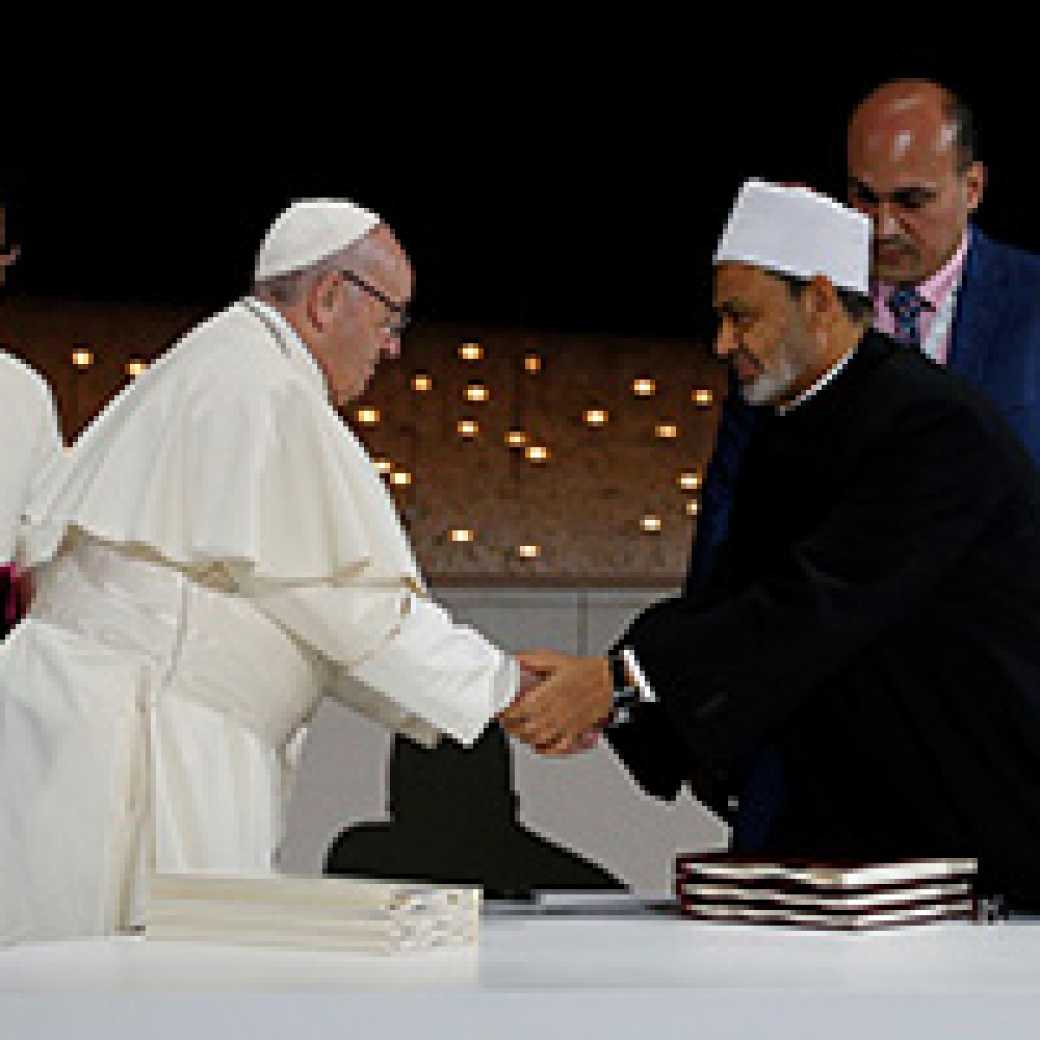Background >
The Church holds all that is good in esteem, even understanding those elements of other religious traditions to be reflections of rays of Truth. Based on this and the recognition of the unity of God’s creation, Catholics are encouraged in dialogue and collaboration with members of other religions. The world’s estimated 1.5 billion Catholics face the challenges of modernity alongside neighbors of every creed. It is our hope and our goal to foster bonds of friendship, mutual understanding, and constructive collaboration among the world’s religions in the genuine service of humanity.
History >
The Catholic Church’s relationship with the peoples and the communities of other religious traditions was sharply impacted by the Second Vatican Council’s 1965 Declaration on the Relation of the Church to Non-Christian Religions, Nostra Aetate.
Since the Second Vatican Council, the Dicastery for Interreligious Dialogue has provided several documents delineating the Catholic approach to interreligious dialogue. Viewed as one mode of outreach among many, dialogue can take many forms. The PCID describes four so that all can find a method that suits their experience: the dialogue of life, the dialogue of action, the dialogue of theological exchange, and the dialogue of religious experience (Mission and Dialogue, 1984; Dialogue and Proclamation, 1991).
In the U.S. >
In a spirit of obedience to the Council, the National Conference of Catholic Bishops expanded its ecumenical work to include interreligious dialogue in 1966. Since then, dialogues and consultations have been established with members of different religions, including Islam, Buddhism, Hinduism, Jainism, and Sikhism, as well as membership in multilateral groups, such as Religions for Peace-USA and Shoulder to Shoulder.

